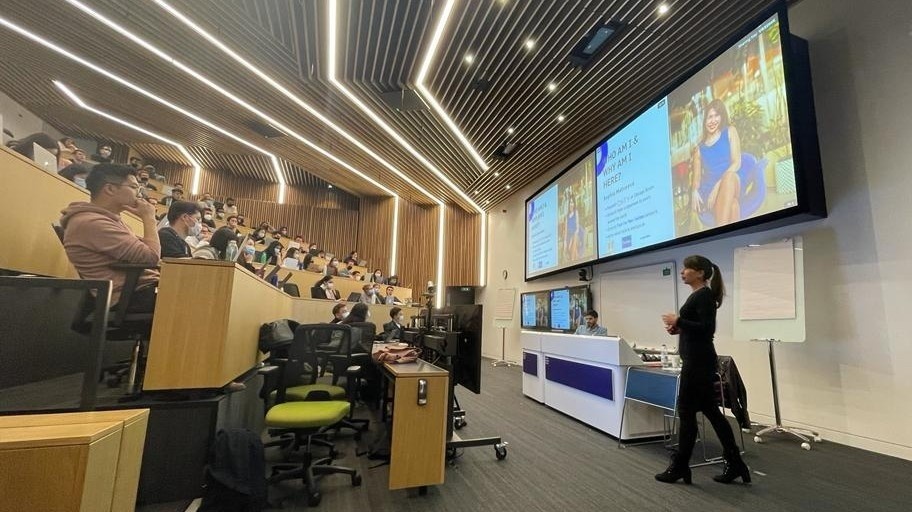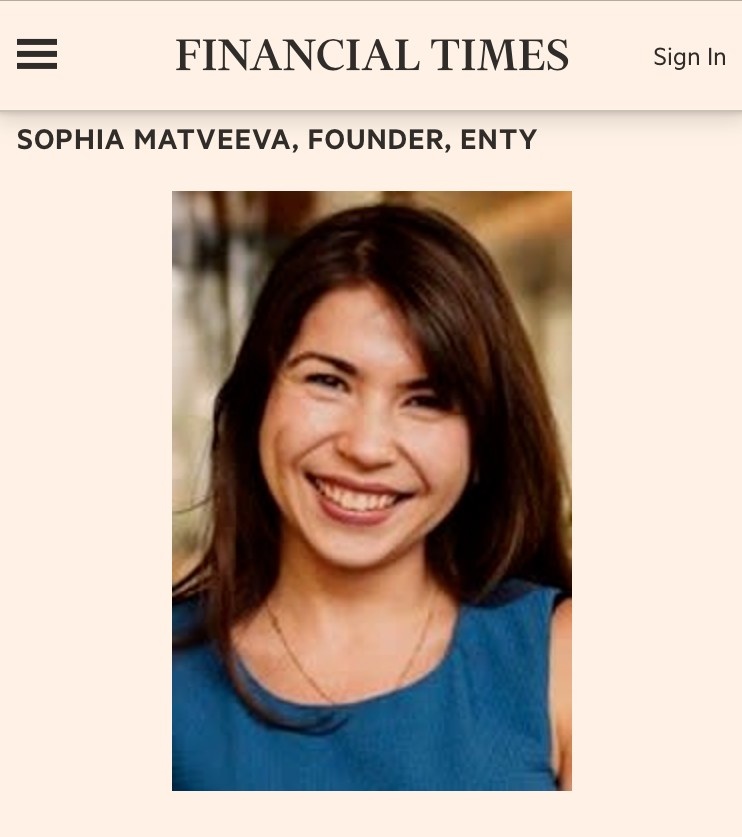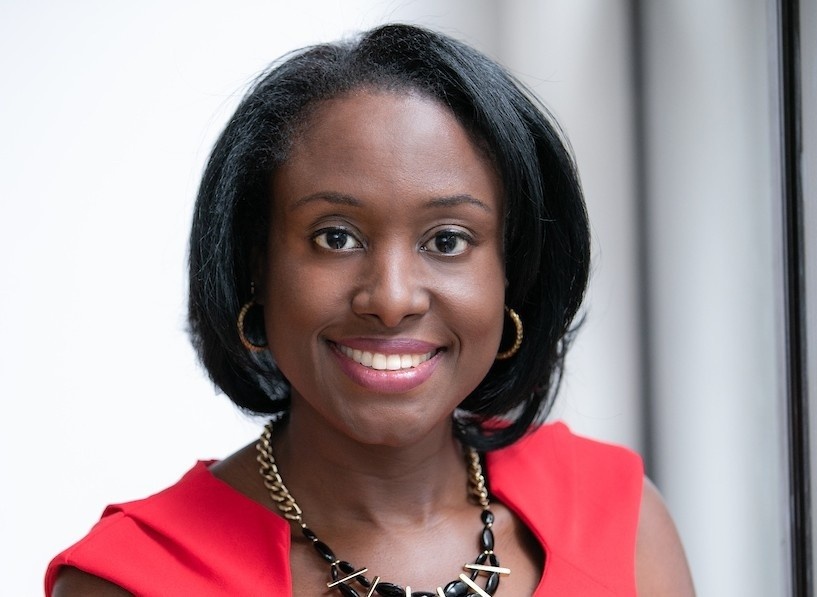Want a higher paying and more exciting career?
Did you know that 54% of the jobs at tech companies are non-technical roles (Glassdoor).
- Do you want to know what opportunities there are to succeed in tech as a non-techie?
- Do you know key technology concepts that you'll need to succeed in the tech sector?
- Do you know how to use your professional experience to jump into tech?
The How To Transition Into A Career In Tech program will teach you what you really need to know about tech to succeed as a non-technical professional, help you come up with a tailored career action plan and support you throughout your journey.
If you want to break into a career in tech, then you're in the right place.
Apply for Break Into Tech


Classes taught at




Jobs in tech pay more
Non-technical roles in tech companies pay more than their equivalents in traditional businesses.
Here are some examples from recent job ads:
- Sales manager, Dell Technologies, $193,472
- Finance manager, Intel, $167,640
- Marketing manager, Microsoft: $165,100
- Supply chain manager, Apple: $190,068
There is plenty of opportunity to join the tech boom, without completely retraining as a coder or as a data scientist.
But you still need to know the basics:
- understand technology workflows,
- learn how to ask the right questions and
- collaborate with designers and developers
This is exactly what you will learn at Tech for Non-Techies with me. I’ve taught my courses at Oxford University and London Business School, and has coached ambitious professionals on how transition into careers in tech.
Apply for Break Into Tech
Juan Pablo Regidor,
Head of Innovation,
Soluciones Integrales Administrativas y Técnicas
Sophia Matveeva 's knowledge is outstanding and I encourage anyone to seek for her advice.

Ali Jetha, Investor & Chicago Booth MBA
I find Sophia’s insights and advice very useful, as well as time-saving, helping filter the relevant aspects.
Hi I'm Sophia!
I am a non-technical founder, and I have co-created apps and algorithms that have been used by thousands, won App of the Day by Mashable, and were featured by Inc, the BBC and more.
I've set up the Tech For Non-Techies education community to help other non-technical professionals succeed in the innovation economy. You don't need to learn to code to be part of digital transformation, but you do need to know how to work with people who do.
I've contributed to the Financial Times, The Guardian and Forbes on entrepreneurship and technology. I have also guest lectured at Chicago Booth, London Business School and the London College of Fashion to name a few.
I love helping new ideas come to life and I've advised the Blackstone x Techstars accelerator at the University of Texas, Chicago Booth’s New Venture Challenge and the Microsoft x London College of Fashion incubator, as well as many ventures and investors.
I hold an MBA from Chicago Booth, and a BSc (Hons) in Politics from Bristol.
I also speak Russian and French. I split my time between London and the South of France, where I play tennis and sail with huge enthusiasm and very little skill.

My Story
When I got the admissions letter from Chicago Booth, I thought life was going to be sorted. Or at least my career!
The University of Chicago Booth School of Business was consistently ranked as the global #1 business school by Business Week and The Economist, so I was feeling pretty smug.
My plan, as I wrote in my admissions essay, was to get to business school, come up with a brilliant startup idea, get a team together, get funding and leave with an MBA and a startup. Naturally, world domination would follow.
By this point, I had worked in a top financial PR company, had a stint in a private equity firm in London and worked in India. I had very little knowledge of the tech sector, but it seemed to be where all the opportunity was coming from.
I desperately wanted to join the tech boom, and spent most of business school testing various ideas for tech startups. Eventually, the beginnings of an idea for a retail tech business began to take place.
I managed to convince some of my classmates to join me and, through sheer bloodymindedness, we got into the Chicago Booth New Venture Challenge, the top academic accelerator in the United States.
The problem was, none of my classmates actually new how to build the thing we were pitching. Naturally, we didn't get very far in the accelerator, but again, through more persistence and bloodymindedness, I managed to raise some angel funding and marched bravely towards global tech domination.
This is when disasters began to strike. I worked with a part time CTO, who was planning to raise his Big Tech job when we had raised more money. He said words to me I did not understand.
I looked them up on Google and watched endless YouTube explanations, but that left me more confused. I signed up and paid for coding courses, which I either hated and completed or failed to finish and wallowed in guilt.
There are plenty of courses helping you to retrain to become a developer or a data scientists, but that's not what I needed. I needed to know how to work with technical professionals to deliver a product into users' hands.
I ended up learning how to hire and work with developers, designers and data analysts on the job. It was a hard, painful and expensive journey, but when I was going through it, there was no other way.
I began writing about what I was learning in Forbes, and when my article What Non-Technical Founders Really Need To Know About Tech reached thousands in less than a day, I realised that I was not alone.
I began giving talks to help non-technical entrepreneurs get the skills and confidence to build their tech ventures. I taught University of Chicago alumni, spoke at the Mayor of London's international trade promotion agency London and Partners and at entrepreneurial hubs like WeWork.
One day, an MBA student from London Business School came to my talk and found it so useful, he convinced London Business School to host the course.
Since then, the students have used my courses to create their first products, transform their careers and innovate at the world's largest companies.
I believe it is not only possible but desirable for people without computer science backgrounds to be an active participant in today's digital economy.
Tech isn't just for tech bros. It's for all of us.

Aiysha Johnson
"As an alumna of the University of Chicago, I studied courses in policy, social impact, and business. However, I never knew what it meant to build a tech-enabled product.
I turned to a fellow alum, and joined Sophia's Tech for Non-Techies and never looked back. Now, I can have impactful conversations with tech experts."
.
Read before applying
So that you can get the most out of booking a call with me, please take a moment to discover whether this is the right fit for you.
What I Bring To The Table
I Have A Unique Perspective Based On Real Life Experience
I have a strong viewpoint developed from creating tech products and businesses, and helping other smart people do the same. I have been published in Forbes, the Financial Times, The Guardian precisely because I have a unique perspective. Being plain vanilla isn't me.
Yes, I have an MBA from Chicago Booth, but the thing that really sets me apart is that I put that theory into practice, and can tell you what really works, and how long it takes.
Not to mention my happy consulting clients - this is why clients hire me.
What I Do Is Not For Everyone
I have a no non-sense and pragmatic approach. I do not believe that everybody has to learn to code. I don't think learning Python is going to make you a better innovator.
I want to help smart non-technical professionals succeed in the tech world, while using the core competencies they already have.
Attitude is Everything:
Work is much more productive without the somber mood! In a world where everything is overly serious, I approach challenges with a fun, creative and a “how can we” attitude. Afterall, we should enjoy what we do :-)
If I get any hint that you will not be fun to work with, will not follow through, or that you are not passionate about what you do, it’s a hard “no” for me.
Code of Conduct
Golden Rule of Mutual Respect
I am not your employee, I am your ally and partner. We are working together to help you succeed in the digital world, therefore we will treat each other with mutual respect.
I will show up on time for our meetings, and you will have my full attention. I will treat you the way I would want to be treated, and I expect the same.
Rule of Clarity:
Open, honest and kind communication comes first. I will always share what is best for you, even if is not easy to hear. My coach does this for me, and I want to do the same for you.
Rule of Phones:
When I am working with you, you have my full undivided attention. My phone is in the other room. On our call, I expect the same from you, this is how we get things done. Because I don’t have my phone on me most of the time, I will not always answer when you call or text (although I will get back to you the same day).
Rule of Value:
I am reassuringly expensive - I don't work for free, I don't do trades, and I don't give discounts.
I love what I do, AND I love getting paid for what I do... I bet you love getting paid for what you do as well. (see the The Golden Rule above)
Break Into Tech program investments range from $2,000 - $8,000 depending on how tailored program is and how much time we spend together.
I've found that the fastest results come from taking one of my online courses + 1:1 coaching support.

